Washington, 21 Dzulhijjah 1436/5 October 2015 (MINA) – As Russia continues to pound targets inside Syria, it is progressively challenging not just militants in the country, but the model once upheld by the U.S. and its Western allies as a solution to the Syrian conflict.
For a little more than a year, Washington has been leading a coalition of more than 60 nations seeking to degrade and ultimately destroy Daesh. It has simultaneously been pursuing a political transition in Syria that would see Syrian President Bashar al-Assad depart from power and an interim government put in place.
That transition seemed all the more likely with the Syrian government’s recent battlefield losses in the east near the ancient city of Palmyra, and north, near Idlib, Anadolu Agency quoted by Mi’raj Islamic News Agency (MINA) as reporting.
But it now appears that Russia has decided to seize the initiative and ensure that its key ally does not fall from power.
Also Read: Russia Defends Indonesia, Calls IOC “Hypocritical” Over Israel Visa Dispute
Moscow began flying its first sorties on Wednesday, with strikes ostensibly aimed at Daesh hitting near western Syria’s Hama and Homs.
Shortly after the strikes became public, Defense Secretary Ashton Carter said that it did not appear that any Daesh forces were in the strike zone, and Russia later acknowledged that its strikes would target groups other than Daesh.
During a second day of strikes Thursday, Russia reportedly hit targets in the same area as well as Idlib and the strategic city of Jisr al-Shugour, allegedly attacking the rebel Jaish al-Fatah, or Army of Conquest, Islamist group.
Asked why Russia would initially maintain that it was targeting Daesh, Lawrence Korb, a senior fellow at the Center for American Progress, said Russia’s maneuvering was shrewd politicking amid the international community’s meeting in New York for the annual UN General Assembly.
Also Read: IOC Suspends Indonesia’s Bid to Host Olympic Events After Visa Refusal for Israeli Athletes
“That plays on the world stage, because the whole world is concerned about ISIL, not just the countries in the Middle East,” said Korb. “You’ve got people from all over the world going to join ISIL.”
It’s now fallen to Washington and Moscow to ensure that their aerial sorties do not inadvertently cause a wider confrontation, known as de-conflicting, that could rapidly escalate into a showdown between the world powers.
Hardin Lang, another senior fellow at the Center for American Progress, said that de-confliction “is probably the most pressing tactical issue between Russia and the United States at this point”.
Russia’s airstrikes were precipitated by a substantial military buildup in western Syria, including the deployment of roughly 2,000 forces, a number of bomber jets and attack helicopters, troops to defend Russian installations, and Spetsnaz Special Forces likely deployed for potential pilot recovery missions.
Also Read: ICJ Rules Israel Must Facilitate Humanitarian Aid to Gaza Under Geneva Convention
Washington may find itself unable to affect Russia’s calculus for its initial deployment, and ongoing military activities in Syria, according to Lang.
“I don’t think there’s a lot that we can do about the folks that are there,” he said. “At the end of the day Assad is still in charge of the government in Damascus and he can invite Russians in to do what they want.”
The Russian advances comes during successive setbacks in the U.S.-led effort to train and equip a moderate Syrian rebel force that could complement the coalition’s bombing campaign in Syria.
The coalition had initially hoped to train 5,400 fighters by year’s end, but that goal seems unattainable with just three months remaining and about only 120 rebels trained so far, nearly half of whom are unaccounted for.
Also Read: Israeli Fans Riot in Tel Aviv After UK Ban
“Russia is clearly trying to exploit U.S. errors and befuddlement about what the best road is ahead,” said Joshua Landis, the director of the University of Oklahoma’s Center for Middle East Studies.
A key issue for Washington and its coalition has been ensuring that the troops it trains and the weapons that they are supplied with do not end up in the hands of extremist groups that have come to dominate the battlefield, particularly al-Qaeda’s Syria affiliate, the al-Nusra Front.
“It’s unclear who America is really arming. So far it’s been arming al-Qaeda. That, of course, is not America’s intent, but the path to hell is paved with good intentions,” Landis said.
While the U.S. effort to develop a native moderate rebel force has faltered, Russia can rely upon its allies – Lebanese Hezbollah, the Syrian Arab Army and Iranian forces – to take the lead on the ground while it provides them with air support.
Also Read: UK Bans Israel Supporters from Maccabi Tel Aviv Match at Aston Villa
Still, with substantial damage to the country, more than 250,000 people killed, and more than four million displaced, it’s unclear if Syria will ever again be a unified country.
The political transition that for so long the Obama administration and its allies have hailed as the solution to Syria’s woes may now be further out of reach than ever before.
“It’s much harder to see how you put the state of Syria back together again with some sort of transitional government,” said Lang, the Center for American Progress senior fellow.
Rather than seeking a unified Syria, Moscow and Damascus may settle on the establishment of a state along Syria’s western quadrant, but that poses long-term challenges for the allies while potentially securing Assad’s position and Russian interests – namely maintaining its sole ally in the Arab Middle East and its only Mediterranean naval facility at Tartus, Lang said.
Also Read: IOC Urges Indonesia to Grant Visas for Israeli Athletes
“The path of least resistance for Russia and the Assad regime is probably the rump state,” he said, referring to the western partition. “That rump state is going to be doing battle with ISIS for a long period of time to come. So it might be easier to do it in the short term, or in the medium term, but it doesn’t lead to a long-term sustainable solution for Russia’s strategic interests in the region.”
Even as Russia and the U.S. scramble to ensure that their now competing military activities in Syria do not result in an unexpected confrontation in Syrian skies, it’s unclear what Moscow’s intervention will ultimately mean for the country. But, at least in the short-term, it appears that their support will prop up the beleaguered Syrian government. (T/P010/R03)
Mi’raj Islamic News Agency (MINA)
Also Read: Greta Thunberg Describes Five Days of Abuse in Israeli Custody





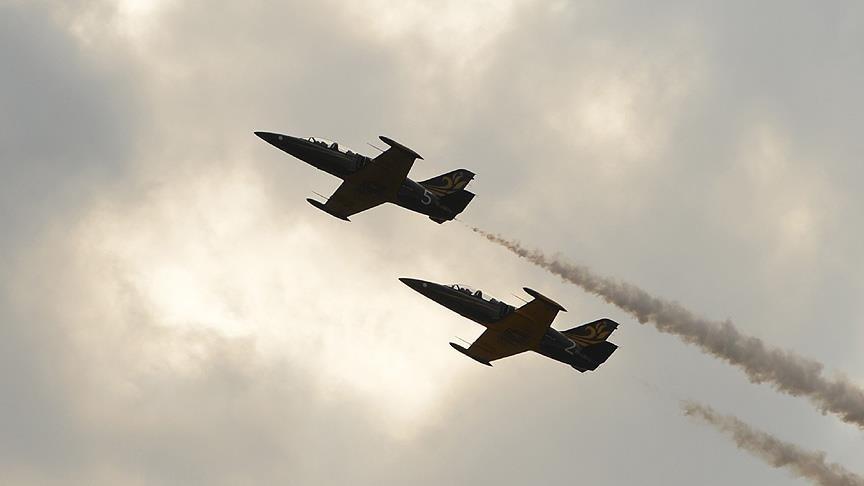






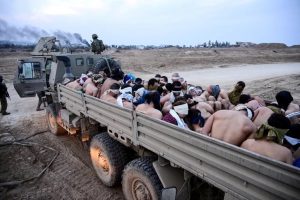




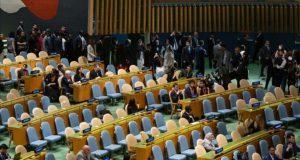
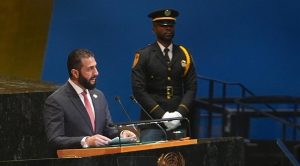
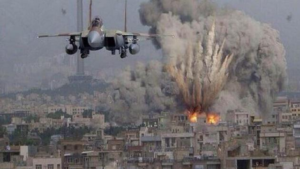
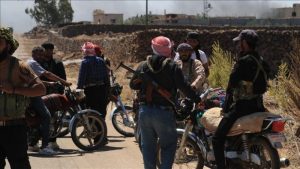
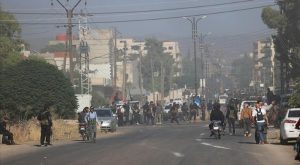







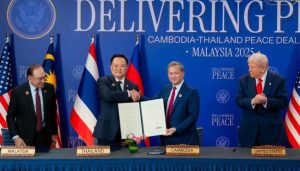
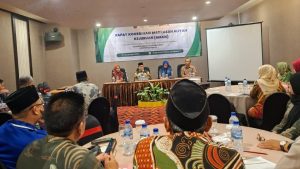





 Mina Indonesia
Mina Indonesia Mina Arabic
Mina Arabic